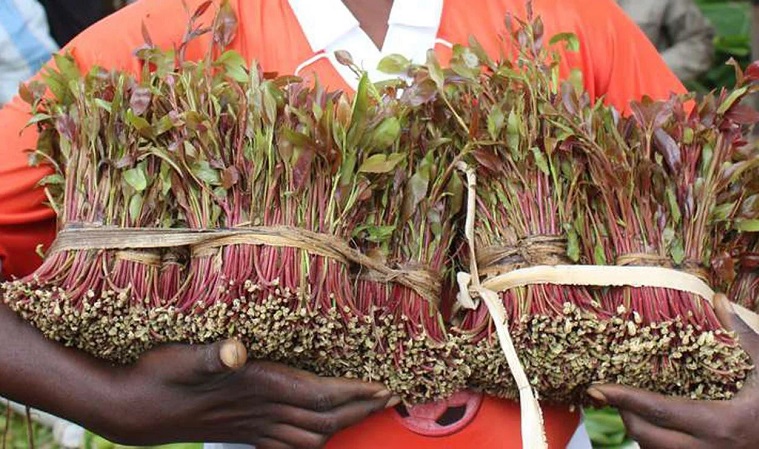Miraa traders will be stopped from transporting the product using pick-ups, proboxes, and motorbikes if the new proposed legislation that is pending before the Senate becomes law.
In a move that is likely to hurt Miraa farmers like never before, if the legislation becomes law, they will be required to get a specific and valid license to plan, sell, or export the crop that is popular in Meru.
The proponents of the legislation say that the move is aimed at ensuring that the quality of Miraa from Kenya is high and accepted to the international markets. But at what cost to the farmer?
At the same time, the legislation will require farmers and traders to transport the same through a specially-built vehicle that has the required temperatures to keep the crop in high quality.
At the same time, Miraa will no longer be transported together with other products that might contaminate it, hence altering its quality. All the farming, harvesting, and transportation will be highly controlled by the new proposal.
“Non-compliant produce due to food safety will be seized, detained, and destroyed at the cost of the offender,” reads part of the legislation, spelling doom for thousands of farmers and traders across the country, especially in Meru County.
At the same time, “A Miraa product presented using forged export or import documents shall be destroyed upon interception and the company suspended from the export dealership for one year,” continued the proposed legislation.
For years, Miraa farming and transportation within the country have been without control. Most of the product is exported to Somalia where the value of the trade had hit at least four billion shillings in just 6 months of the resumption of the export after the suspension of the ban.
Related Content: KEBS Sets Hygiene Standards For Those Selling Miraa

